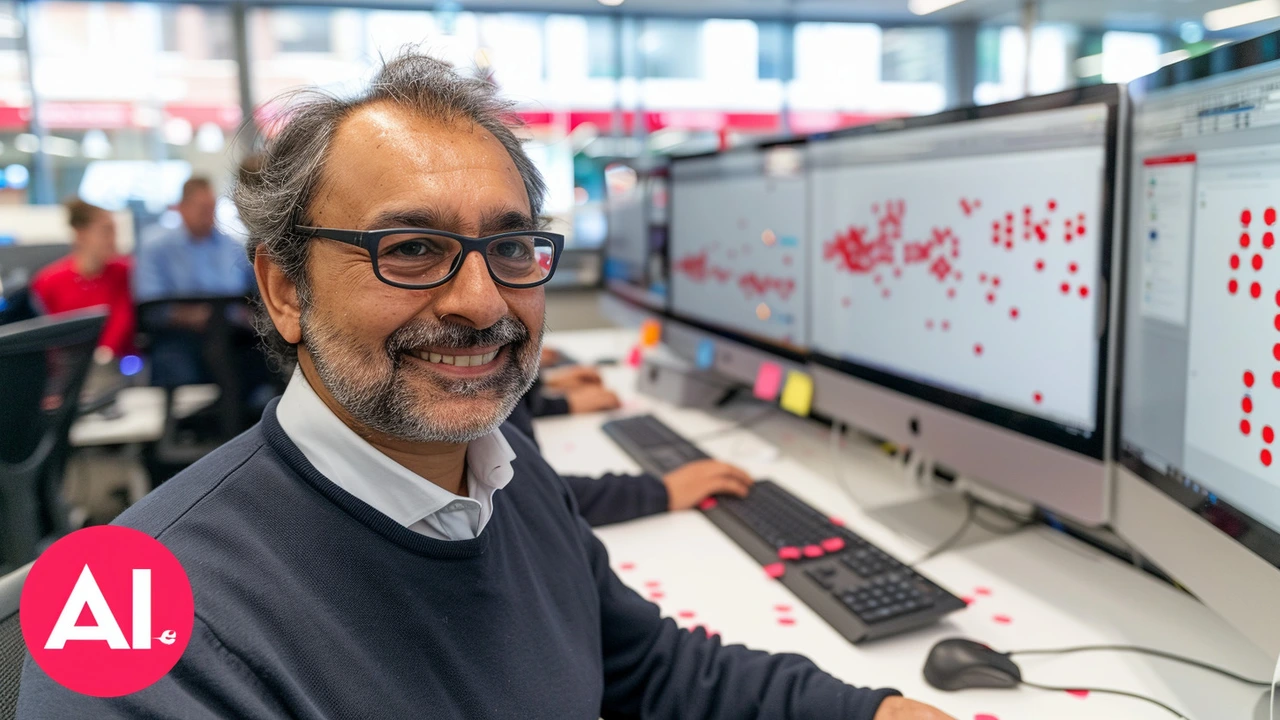Coding for AI: Pioneering Strategies in Tech Development

Coding for AI: Pioneering Strategies in Tech Development
The Evolution of AI in Technology
The genesis of artificial intelligence (AI) marks a pivotal transformation in technological capacities, propelling industries into a new era of automation and smart solutions. The inception originated from the desire to endow machines with human-like understanding, and today, AI's capabilities surpass many expectations. AI applications now span a variety of sectors including healthcare, finance, and logistics, optimizing processes and enhancing decision-making.
At the heart of this technological revolution is the unique art of coding for AI. Unlike traditional software development, programming for AI incorporates algorithms that can learn from and adapt to new data without explicit human instruction. This shift necessitates a profound understanding of not only programming languages like Python and Java but also machine learning frameworks such as TensorFlow and PyTorch.
A crucial aspect here is the volume and complexity of data handled. AI systems require extensive datasets to learn effectively. This demand has birthed innovations in data management and processing, integral for training accurate and efficient AI models. As tech continues to evolve, the role of AI-specific coding languages and frameworks has become central, marking a distinct realm within software development.
Essentials of Coding for AI
Delving into AI coding requires more than a cursory knowledge of programming. It calls for an intricate blend of algorithmic thinking, statistical understanding, and a robust grasp of neural networks. To embark upon this, a coder must familiarize themselves with Python, the lingua franca of AI development today. The simplicity and versatility of Python, along with its vast ecosystem of libraries like NumPy, Pandas, and Scikit-learn, make it extremely conducive for AI projects.
Understanding machine learning algorithms—ranging from simple linear regressions to complex deep learning networks—is vital. Each type of algorithm serves a specific purpose and is chosen based on the problem at hand. Practical engagement with these algorithms through platforms like Jupyter Notebooks provides invaluable hands-on experience.
Moreover, effective AI programming also demands proficiency in data handling skills. This includes data cleaning, transformation, and employing sophisticated techniques to handle overfitting and underfitting, which are common challenges in AI model training. Such skills ensure that the AI systems developed are not only powerful but also reliable and scalable in real-world applications.
The Intersection of Ethics and AI Coding
Coding for AI introduces profound ethical considerations. The software developed inevitably shapes the way AI interacts with humans and makes autonomous decisions. This power carries with it a significant responsibility to ensure fairness, transparency, and accountability in AI models. Ethical AI coding practices involve the thorough examination of algorithms to prevent biases often inadvertently introduced during the training phase.
Incorporating ethics from the initial stages of AI project development is crucial. This approach ensures that AI systems do not perpetuate existing societal biases, but contribute positively by offering unbiased outcomes. Attention to inclusivity and diversity in AI training datasets, along with ongoing monitoring and audits, are practical measures to uphold ethical standards in AI development.
Future Prospects and Innovations in AI Coding
The horizon of AI technology is brimming with potential, poised to introduce groundbreaking changes across various sectors. Anticipated advancements in AI coding are expected to lead to more intuitive AI systems that can understand and perform tasks with unprecedented accuracy and efficiency. The role of quantum computing in AI, for instance, presents an exciting frontier. Quantum-enhanced algorithms could drastically reduce the time it takes for AI models to train and operate, thus unlocking new possibilities.
The continuous interplay between AI and emerging technologies like blockchain and IoT promises to foster novel solutions that were previously impractical. The synergy of these technologies could lead to enhanced security features in AI applications, more robust data management systems, and much more.
In conclusion, as we forge ahead into an increasingly AI-integrated future, the role of specialized AI coding cannot be overstated. The transformative potential it holds is immense, provided ethical guidelines and continuous innovation remain at the forefront of the endeavors.
About
CH Tech Development is a premier resource for the latest updates and insights in the world of technology development. We provide extensive information, articles, and guides on cutting-edge technological advancements. Explore our site to empower your knowledge about the dynamic field of tech development.
Latest Posts


PHP Tricks: The Ultimate Guide To Streamlining Your Coding Process
By Silas Hawthorne Aug 6, 2023

Understanding the Ethics of Artificial Intelligence
By Theodore Worth Oct 26, 2023

Code Debugging: The Secret to Efficient Programming
By Larissa Bentley Oct 20, 2023

Write a comment